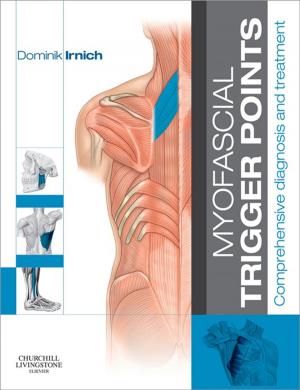The Ins and Outs of POOP
A Guide to Treating Childhood Constipation
Nonfiction, Health & Well Being, Medical, Specialties, Pediatric Emergencies, Allied Health Services| Author: | Thomas DuHamel | ISBN: | 1230000113548 |
| Publisher: | Maret Publishing | Publication: | March 9, 2013 |
| Imprint: | Language: | English |
| Author: | Thomas DuHamel |
| ISBN: | 1230000113548 |
| Publisher: | Maret Publishing |
| Publication: | March 9, 2013 |
| Imprint: | |
| Language: | English |
“As a doctor who specializes in the intestinal problems of children, I have often wished for a book like this to offer to families whose children suffer from functional constipation. I fully endorse this book and commend Dr. DuHamel for doing such a wonderful job of making it easy to read and helpful for families and medical professionals alike.” - Uma Pisharody, MD, FAAP, Pediatric Gastroenterologist
Help your child with toileting issues by reading this new book by toileting expert Dr. Tom DuHamel.
Functional constipation (encopresis) is an increasingly common condition that can cause children aged 2 to 12 years to soil their underwear and have full-blown poop accidents without any awareness that they have to use the toilet. There are approximately 4.5 m children in the US with this problem. The good news is that the warning signs of functional constipation can be recognized and dealt with before it becomes a source of pain and shame for children and their parents.
This is a first-of-its-kind book about childhood constipation. It is a how-to book for parents and a treatment guide for pediatric healthcare specialists. Occasional or mild constipation is very common in children. However, more than 20% of children who have occasional constipation go on to develop a more severe type of constipation known as functional constipation or encopresis.
Functional constipation occurs when children do not sense the need to defecate. Some of these children accidentally soil in their underwear, which causes them embarrassment. Functional constipation is not a disease but it does cause serious physical and emotional problems which can be prevented by knowing what to do when a child develops occasional constipation. Because functional constipation can persist for months or years, treatment can be stressful for everyone involved, including healthcare providers.
To treat functional constipation, parents and providers work together as a treatment team over an extended period of time to manage and resolve the problem. There are six steps required to effectively treat functional constipation: 1. Educate the family 2. Empty the rectum 3. End withholding 4. Shrink the rectum 5. Withdraw laxatives 6. Remain vigilant
Each step is explained in detail along with the tools needed for successful implementation, such as forms for data collection and instruction in the use of laxatives and incentives. There are many stories written by parents describing specific aspects of their child's treatment.
The book is written in a practical fashion and uses cartoon-like illustrations to highlight key points. It emphasizes the very good news that with comprehensive care, functional constipation can be dramatically improved.
“A significant number (approximately one third to one half) of adults with functional gastrointestinal disorders report having abdominal pain and bowel problems as children. This book will be very useful to parents and children in learning strategies early in life that may reduce or prevent the long term impact of functional constipation in their adult years.”
- Margaret Heitkemper, PhD, RN, FAAN, Professor and Chair, Biobehavioral Nursing and Health Systems, University of Washington School of Nursing
“As a doctor who specializes in the intestinal problems of children, I have often wished for a book like this to offer to families whose children suffer from functional constipation. I fully endorse this book and commend Dr. DuHamel for doing such a wonderful job of making it easy to read and helpful for families and medical professionals alike.” - Uma Pisharody, MD, FAAP, Pediatric Gastroenterologist
Help your child with toileting issues by reading this new book by toileting expert Dr. Tom DuHamel.
Functional constipation (encopresis) is an increasingly common condition that can cause children aged 2 to 12 years to soil their underwear and have full-blown poop accidents without any awareness that they have to use the toilet. There are approximately 4.5 m children in the US with this problem. The good news is that the warning signs of functional constipation can be recognized and dealt with before it becomes a source of pain and shame for children and their parents.
This is a first-of-its-kind book about childhood constipation. It is a how-to book for parents and a treatment guide for pediatric healthcare specialists. Occasional or mild constipation is very common in children. However, more than 20% of children who have occasional constipation go on to develop a more severe type of constipation known as functional constipation or encopresis.
Functional constipation occurs when children do not sense the need to defecate. Some of these children accidentally soil in their underwear, which causes them embarrassment. Functional constipation is not a disease but it does cause serious physical and emotional problems which can be prevented by knowing what to do when a child develops occasional constipation. Because functional constipation can persist for months or years, treatment can be stressful for everyone involved, including healthcare providers.
To treat functional constipation, parents and providers work together as a treatment team over an extended period of time to manage and resolve the problem. There are six steps required to effectively treat functional constipation: 1. Educate the family 2. Empty the rectum 3. End withholding 4. Shrink the rectum 5. Withdraw laxatives 6. Remain vigilant
Each step is explained in detail along with the tools needed for successful implementation, such as forms for data collection and instruction in the use of laxatives and incentives. There are many stories written by parents describing specific aspects of their child's treatment.
The book is written in a practical fashion and uses cartoon-like illustrations to highlight key points. It emphasizes the very good news that with comprehensive care, functional constipation can be dramatically improved.
“A significant number (approximately one third to one half) of adults with functional gastrointestinal disorders report having abdominal pain and bowel problems as children. This book will be very useful to parents and children in learning strategies early in life that may reduce or prevent the long term impact of functional constipation in their adult years.”
- Margaret Heitkemper, PhD, RN, FAAN, Professor and Chair, Biobehavioral Nursing and Health Systems, University of Washington School of Nursing















